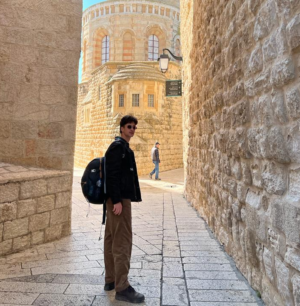Cameroon’s complicated colonial past has manifested itself in the nation’s current civil crisis. The central African country was previously made up of two separate colonies: the British Southern Cameroons (the north-west and south-west regions), and French Cameroun. Throughout independence movements on the African continent in the 1960’s, the two separate colonies reached an agreement to officially form present day Cameroon in late 1961. Due to the differences between the British and French colonial administrations, the Cameroonian population was largely characterised by several differences; the most significant difference being the francophone and anglophone communities. Post unification, the Anglophone population now comprises a minority of the Cameroonian population.
Following unification, the Anglophone population has been vocal about facing discrimination and exclusion from national affairs by the Francophone majority of the population. For example: education ministries and policies are aligned with the French system, public services are not being offered in English, and the judicial system does not accommodate English speakers. Due to allegations and consequent frustration, Cameroon saw the creation of several separatist groups within the anglophone population. They have been pushing for the creation of a new English-speaking and Common-law state, to be called Ambazonia.
2016 was characterised by several protests. The government’s violent responses escalated protests into a civil war, which has been ongoing since 2017. Cameroon has seen a downward spiral in terms of peace and domestic security, especially in the English speaking regions of the country. According to the UN office for the Coordination of Humanitarian Affairs (OCHA), basic services like education have been inaccessible for more than 700,000 children in Anglophone regions in 2021 alone.
The mostly French-speaking government has been accused of further destabilising English-speaking communities by attacking and displacing them, as well as keeping Anglophones hostage in certain areas. The government has since denied those allegations, and have only taken responsibility for forceful action against the separatist groups within the two Anglophone regions.
According to the Human Rights Watch 2022 report, casualties arising from this Anglophone crisis have been estimated to 4,000 civilians. However, there are no distinctions made between the number of casualties as a result of government forces, or separatist groups. Unfortunately, negative ramifications of current civil unrest have concentrated in the northwest and southwest regions, which were already disadvantaged in comparison to French-speaking regions.
Several governments and international organisations have looked to the Cameroonian government, headed by President Paul Biya since 1982, for direction and clarity regarding a potential ceasefire between the government and separatist groups in the country. The government’s attempt at holding peace talks in October 2021 led to an even greater rift between both political fronts, allowing the violence and casualties to spiral further.
Early this year, Canada’s Minister of Foreign Affairs announced that the Cameroonian government extended an arm to Canada to aid them in potential peace-talks and resolve the five-year crisis. According to the Canadian statement, the parties to these peace negotiations include, the Republic of Cameroon, the Ambazonia Governing Council, the Ambazonia Defence Force and others.
However, soon after the Canadian announcement, the Cameroonian government denied any plans to have Canada as the mediating nation between both political fronts. According to the Cameroonian government spokesman, “Yaoundé has never entrusted any country with the role of facilitator or mediator with separatists in its western regions.” The Cameroonian government further stressed that if anything, they intend to reach a peace agreement without any external mediation, since they have the political and institutional frameworks necessary to succeed.
It is evident that the Cameroonian government is in no rush to reach a peace agreement. However, this beckons the question of whether the government is actively pursuing a peace deal, or if it is profiting enough from the civil crisis to let it go on indefinitely. Finally, many on the African continent watching this crisis unfold ask whether international organisations like the UN have enough political incentive to intervene.






